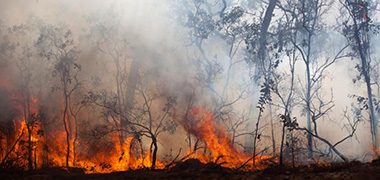
This role has a moderate level of AI exposure. AI can enhance efficiency for some tasks, but this job still relies on human skills and decision-making.
Explore all careersA Geoscientist studies the Earth's physical aspects, analysing data on its structure and processes to aid in resource management and environmental protection.
Browse occupations related to Geoscientist



If you're interested in pursuing a rewarding career in the Geoscience field, consider exploring the range of Geoscientist courses in Tasmania. These courses provide comprehensive knowledge of Earth's systems, equipping you with essential skills sought after by various industries in Tasmania. The landscape of Tasmania, with its diverse geology and rich natural resources, presents an ideal backdrop for aspiring Geoscientists to gain practical experience. Whether your goal is to work in geology, hydrology, or environmental science, the educational opportunities here can set you on the right path.
Upon completion of your studies, a variety of job roles await in the Geoscience sector, including Geophysicist, Hydrologist, and Geologist. Each role comes with unique responsibilities and challenges, making the Geoscientist profession a dynamic field to enter. Furthermore, if you have a keen interest in Earth Science, you can explore further learning opportunities available in Earth Science, which can complement your degree and expand your career prospects. With higher education in this field, you’ll find that the potential for growth is substantial, especially in Tasmania's thriving eco-wellness and mining industries.
Completing Geoscientist courses in Tasmania can also lead you to specialised positions as an Earth Scientist, Hydrogeologist, or even a GIS Specialist. The knowledge you gain will empower you to tackle pressing environmental issues and contribute to sustainable practices across various sectors. As you explore these opportunities, remember that a career in geoscience is not just a job; it’s a chance to make a significant impact on both local communities and the planet. Start your journey today by checking out the numerous training providers and classes available!